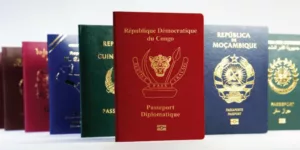On justice and injustice
When injustice strikes, it often comes with the precision and subtlety of a sledgehammer. And when it is served through the thunderous mega-bullhorn of a large news organization like Reuters, you can fight it, but some of the stench that sticks to your reputation can do irretrievable harm.
It was thus on this wintry day in Brussels in December of 2017 that all hell broke loose for innovative and widely-acclaimed Belgian company Semlex, and its CEO, Albert Karaziwan. And while Karaziwan and his company fight the prejudice and injustice ferociously, Reuters can be overwhelming in its reach and clout.
Flagrant Defamation
Someone once said: “You know what happens when you slide your cheek on the edge of a sharp razor blade? Yes! That’s how it feels when you slide your dreams into the palms of toxic and negative people!”
First defamed is Albert Karaziwan: In his early 60’s and father of four, this well-known entrepreneur lives in Brussels, having founded and run several reputable businesses internationally, notably in real estate, and, more recently, in biometric passports.
Next is his company, Semlex. Created in 1992, Semlex relies on a broad experience in development, integration, operational management and supply of high technology systems in identification and authentication. Semlex is a trail-blazing world leader in biometric passports and other high-security identification and official documents.
Reuters-Manufactured Intrigue
It all started in April 2017 with the publication by Reuters of an article written by reporter David Lewis and titled: “The costly biometric passports of the DRC”. In it, Semlex is accused of selling to the Democratic Republic of Congo (DRC) a passport that is the most expensive in the world, the heavy-handed undertone pointing at the prospect of bribes and corruption.
David Lewis then doubled down with the second article in December 2017, this time throwing ill-founded accusations at Semlex for activities in the Indian Ocean island nation of the Comores. The combination of these two articles became irresistible for other international media outlets, heightening the bashing and injustice suffered by Semlex and its CEO, Albert Karaziwan.
To compound matters
The roll-out of the biometric passports did not help at all. Problems erupted in Kinshasa, capital of the DRC, on September 15, 2017, when the DRC’s deputy foreign minister announced the invalidation of the then-prevalent semi-biometric passports, giving citizens until October 16, i.e., one month, to change over to new biometric passports.
This understandably generated a massive outcry, particularly from the government’s opposition groups, on the basis that:
• The new passports would cost a so-called “exorbitant” price of $185
• And all of this at a time when the country was in the midst of an economic downturn that threatened its very fabric
Finger-Pointing with Zero Evidence
To start with, the contract that the DRC delivered followed a protracted, transparent, and internationally supervised bid pitting Semlex against well-established rivals Zetes, Gemalto, and Oberthur. In fact, several media in the know reported a far-reaching association between the finger-pointing reporter David Lewis and archrival Zetes.
In January 2016, and unlike the other bidders, Semlex won the bid “fair and square” as a result of a cost-plus, turnkey proposal that offered the DRC what is known as a “build, operate, and transfer” (BOT) relationship. This included the hugely appealing prospect of the procuring government not having to lay out any upfront fees or infrastructure costs.
How “Expensive” Were the Passports?
Under the terms of the contract, the DRC retains $120 of the $185 cost per biometric passport, with the balance of $65 reverting to Semlex. Against this, Semlex pays for the project’s entire infrastructure, including the setting up of 26 passport-issuing regional centers, and equipping 60 DRC embassies and consulates worldwide for the registration and issuing of passports.
But besides what Semlex offers in terms of initial outlays and management and maintenance expenditures, the biometric passport itself is a state-of-the-art high-security instrument that is quasi-impossible to forge or duplicate. It is thus by necessity more expensive than the run-of-the-mill type of passport that is used almost universally. In view of past problems the DRC had encountered with passport-forging operations, it was the government itself that had sought such a high-end product.
What other Passports Cost
Leave it to other African journals to pursue matters regarding the Semlex, Albert Karaziwan, and the issue of the biometric passport. “Jeune Afrique”, a widely-read Tunisian publication, explains that the most expensive African passport belongs to Chad, at the cost of 228 euros, versus the DRC’s 168 euros.
“Le Vif,” another journal affiliated to the French “L’Express,” goes further than that, asserting that in fact, the world’s most expensive passport belongs right there to Belgium, costing some 40% more than that of the DRC.
It is lastly worth noting that both the Belgian and Chadian passports are not of the biometric kind.
What Bribes?
The rumor-mongers had it that folks at the top of the DRC government pocketed vast amounts of money from the Semlex award. They claimed to have evidence of these sums having ended up in a Dubai bank. That reasoning, however, failed to account for the fact that there were no upfront fees in the Semlex deal to cover such bribes. So, where would the bribes have come from?
A case of a Sore Loser?
As has already been alluded to, it is not easy to buck the reach and sway of Reuters. What Reuters says is usually carried by hundreds of other publications worldwide, the ripple effect constituting a tsunami of innuendo and accusation that transcend the fact that they have zero evidence-based facts for corroboration.
It would perhaps take another Reuters of sorts to fire-up the frequently reported allegations connecting reporter David Lewis to Semlex-competitor Zetes, and Zetes itself to significant political hubs in both Brussels and Kinshasa. Was all this fracas a case of a sore loser?








